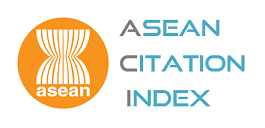DEVELOPMENT OF A PRODUCTION PROCESS FOR CARBONATED BANANA BEVERAGE USING AN ENZYMATIC METHOD
DOI:
https://doi.org/10.35382/tvujs.15.2.2025.131Keywords:
carbonated banana beverage,, CO₂ saturation,, juice yield, pectinase,, sensory evaluation,, vitamin C stability.Abstract
This study aims to develop a production process for a carbonated banana beverage with enhanced sensory and nutritional quality, meeting consumer demand and increasing the value of bananas. The research focuses on optimizing enzymatic treatment using pectinase to improve juice yield and reduce viscosity. Sensory evaluation was used to determine the optimal mixing ratios of banana juice, syrup, and citric acid meeting consumer acceptance. The effects of cooling temperature and CO₂ saturation time on carbonation levels were investigated to ensure adequate CO₂ retention in the final product. Vitamin C stability during storage under different conditions was also assessed to evaluate nutritional preservation. Results showed that pectinase treatment significantly
increased juice yield and reduced viscosity, improving process efficiency. An optimal formulation with balanced sweetness, acidity, and flavor was identified based on sensory preferences, corresponding to the blending ratio of 5:95:0.2 (syrup: banana juice: citric
acid), which received the highest average sensory score of 5.45. Lower cooling temperatures and longer CO₂ saturation times improved carbonation levels. These findings provide practical insights into key processing factors that influence the quality and shelf life of carbonated banana beverages. The developed process offers a promising approach for producing value-added fruit-based drinks, supporting product diversification and the utilization of bananas in the beverage industry.















